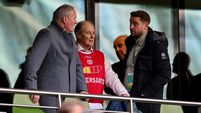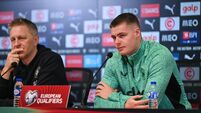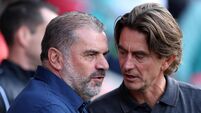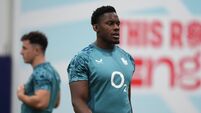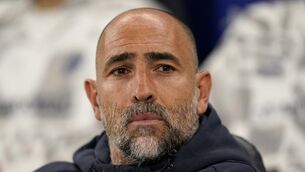In the space of four magical days, Ireland has been reawoken as a football country
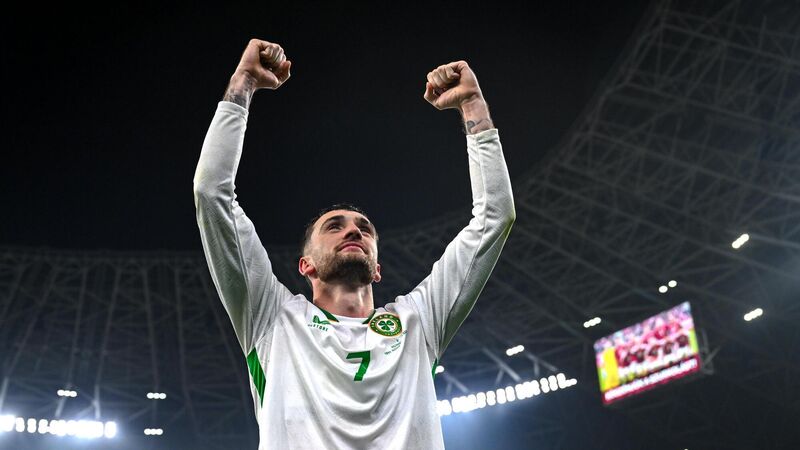
REAWOKEN: Troy Parrott celebrates his hat-trick and Ireland's famous win. Pic: Stephen McCarthy/Sportsfile
As Troy Parrott, a combination of disbelief and glee etched across his face, was chased by team-mates entering a state of delirium at Puskas Arena, in living rooms across the land, sons and daughters who we feared would never witness such a moment were finally getting to experience what their parents had been telling them.
The tears flowed in Budapest. They poured out of eyes in homes and hostelries from Killybegs to Kinsale, every town and village in between – and indeed beyond the island.




